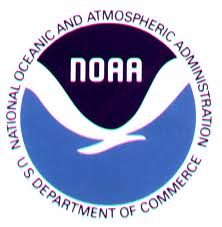Thursday, October 20, 2011
PRINCESS ANNE, MD – (Oct. 21, 2011) – A new round of federal funding will enable the University of Maryland Eastern Shore to continue a signature science program that trains minorities in the field of marine and fisheries sciences.

The National Oceanic and Atmospheric Administration recently awarded UMES and its partners approximately $15 million to extend support of the Living Marine Resources Cooperative Science Center through 2016. It was founded in 2001
The marine science center, under the direction of UMES professor Paulinus Chigbu, is aligned with six partner institutions that also offer students opportunities to participate in hands-on field research.
Since its inception, the consortium of colleges and universities has produced 322 graduates, including: 246 bachelor’s degrees, 66 master’s degrees and 10 doctoral degrees. The marine science center currently works with 139 students, including 22 doctoral candidates.
A recent expansion of graduate-level distance education offerings and the addition of Oregon State University as a partner are expected to make marine and fisheries science more appealing to a wider audience, Chigbu said.
“Research is an important part of the training we offer,” said Chigbu, who became the Center’s Director in 2006 just before it received a second, five-year grant from NOAA.
Delaware State, Hampton and Savannah State universities, the University of Miami and a predecessor to the University of Maryland Center for Environmental Science joined with UMES when it secured the first grant in 2001 from NOAA’s Educational Partnership Program (with Minority Serving Institutions). Oregon State in Corvallis is newest institution to join the center as a partner.
Chigbu said he and other faculty researchers are excited about having a west coast institution as a partner.
“They see things in the Pacific Ocean that we are not exposed to here” on the east coast, Chigbu said. “Our students will benefit from the expertise of fisheries and resource economics faculty at Oregon State.”
College-level instructional programs supported by NOAA, according to its web site, should ensure “students (are) trained in marine and fisheries sciences, and prepared for careers in research, management and public policy that support the sustainable harvest and conversation of our nation’s living marine resources.”
LMRCSC partner institutions specialize in conducting research in “quantitative fisheries; fish production through aquaculture biotechnology and enhanced disease diagnostics and control; and (nutritional) interactions among harvested and non-targeted species,” NOAA’s web site featuring the marine science center says.
The marine science center also works to identify, map and restore “degraded essential habitats of fishes as well as assessing socioeconomic impacts of fisheries management.”
At the time UMES received the initial award from NOAA, the university was moving ahead with development of its Paul S. Sarbanes Coastal Ecology Center in Assateague as a laboratory and educational facility for marine rex

